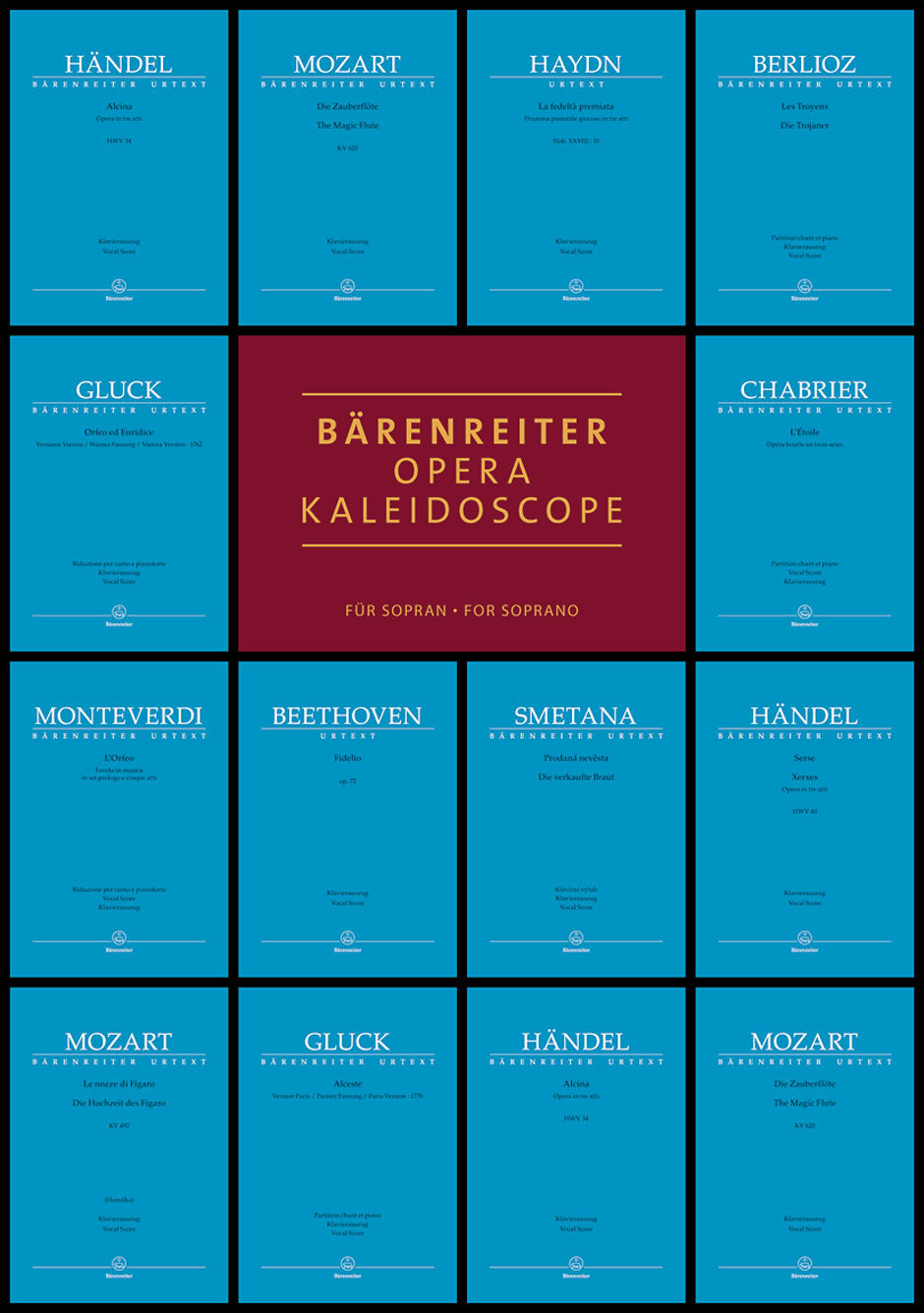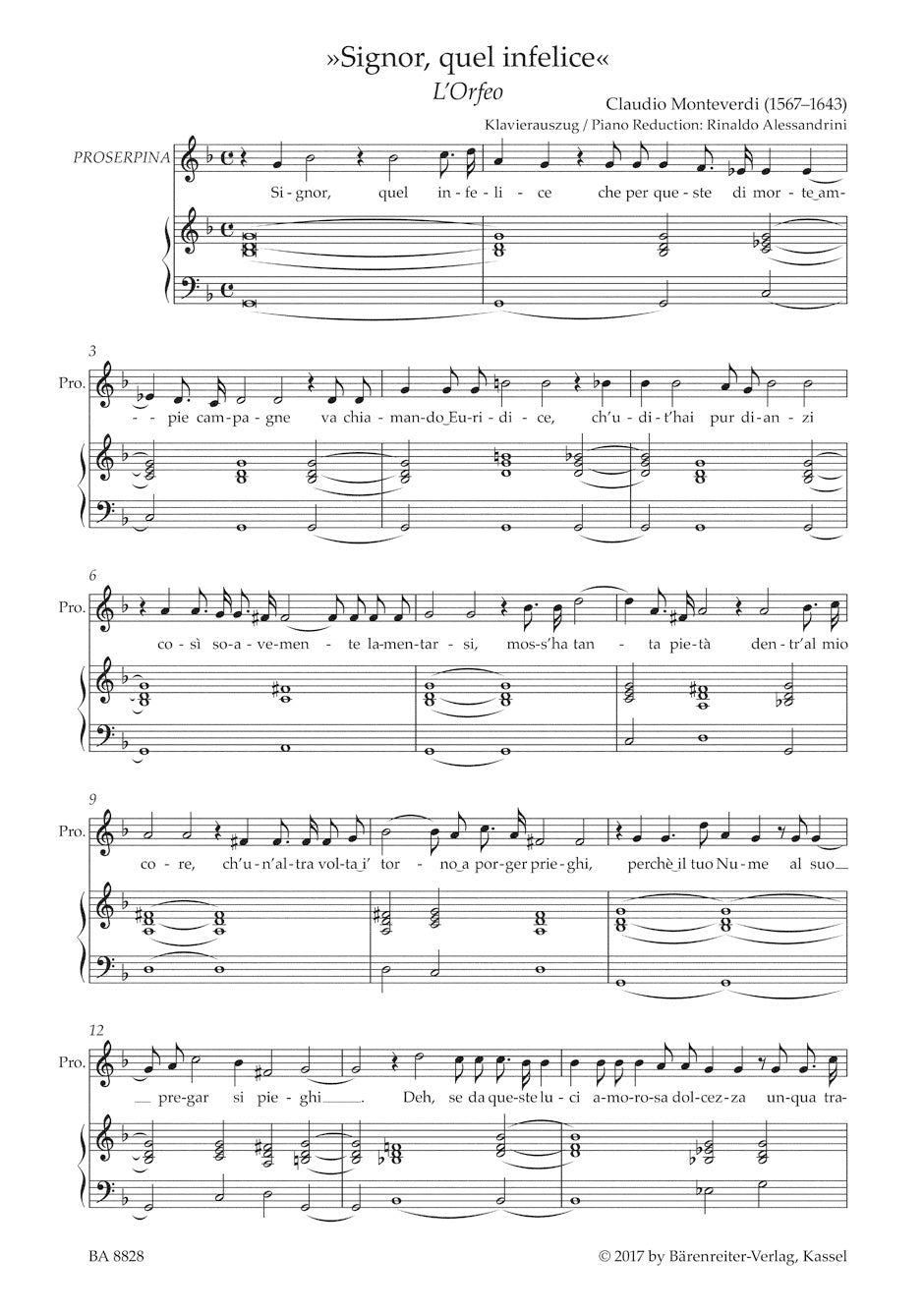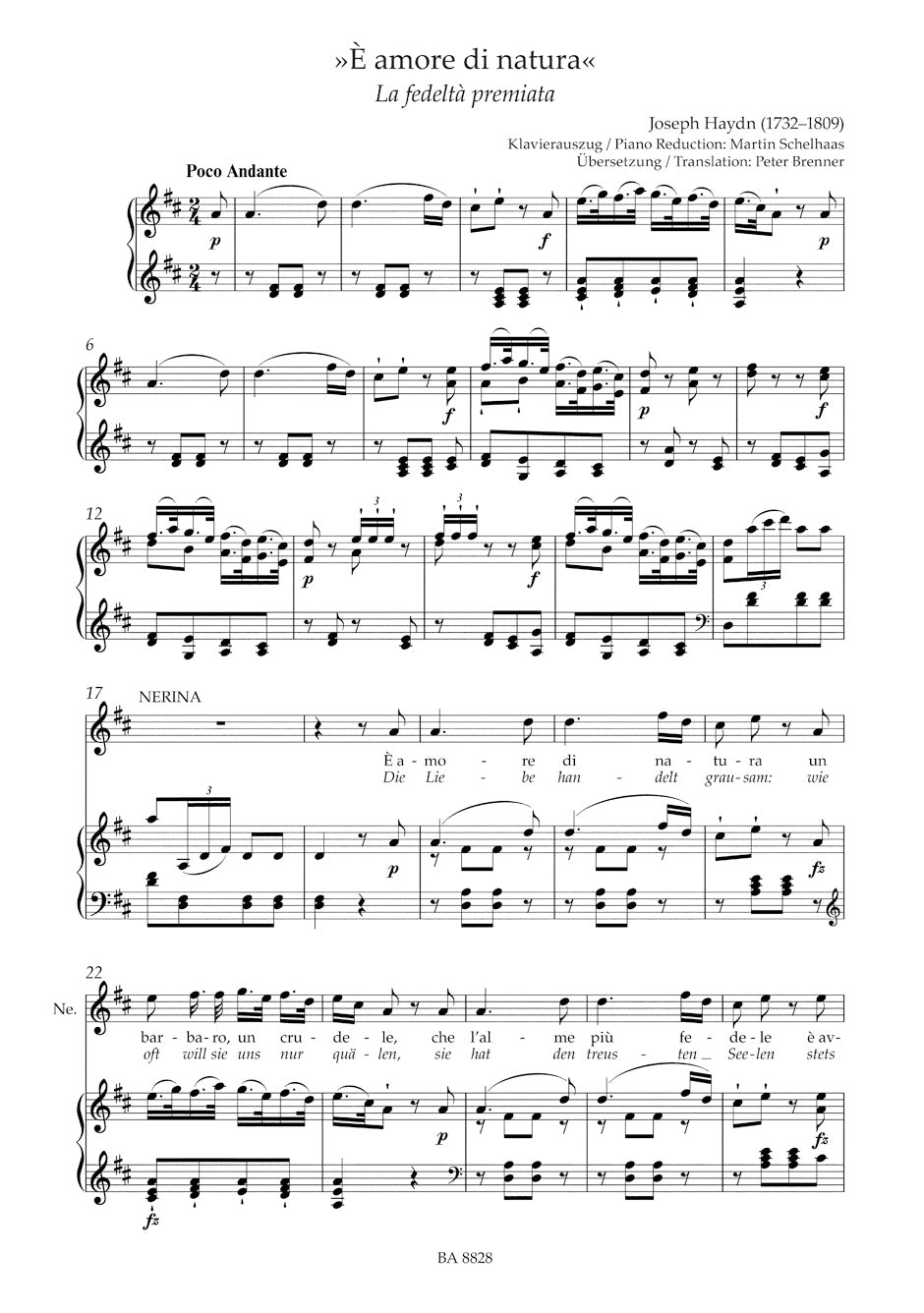Bärenreiter Opera Kaleidoscope for Soprano
In stock and typically ships within 1 business day.
- Format: Vocal Score
- Work Languages: French, German
- ISMN:
- Size: 7.5 x 10.6 inches
- Pages: 62
- Urtext / Critical Edition
Description
An appetiser for our high-quality Urtext opera vocal scores – give it a try and enjoy! This collection of opera arias for soprano (or mezzo-soprano) and piano offers a cross-section of Bärenreiter's extensive catalogue of stage works. An affordable anthology with such well-known and favorite arias as Handel's famous "Ombra mai fu" and Mozart's "Ach ich fühl's, es ist verschwunden!" is not only suited for voice students and aspiring singers preparing for examinations and auditions, but also provides seasoned professionals with inspiration and material for programming their recitals. The collection spans a representative arch from the early baroque to the romantic era, gathering together repertoire masterpieces by Monteverdi, Handel, Gluck, Haydn, Mozart, Beethoven, Berlioz, Smetana and Chabrier. The pieces are in Italian, French, Czech and German and include, for the most part, a singable translation in German. The spectrum ranges from the declamatory style to easy coloratura. The piano arrangements have been prepared by experienced conductors and répétiteurs. • A Bärenreiter anthology for opera singers • Contains important arias from the opera repertoire for (mezzo-)soprano Contents Ludwig van Beethoven: "O wär' ich schon mit dir vereint", Marzelline's aria from Fidelio / Hector Berlioz: "Adieu, fière cite", Dido's aria from Les Troyens / Emmanuel Chabrier: "Ô petite étoile !", Lazuli's romance from L'Étoile /Christoph Willibald Gluck: "Divinités du Styx", Alceste's aria from Alceste (Paris version 1776) / Christoph Willibald Gluck: "Qual vita è questa mai" – "Che fiero momento", Eurydice's recitative and aria from Orfeo ed Euridice (Vienna version 1762) / George Frideric Handel: "Tornami a vagheggiar", Morgana's aria from Alcina (HWV 34) / George Frideric Handel: "Frondi tenere" – "Ombra mai fu", Xerxes' recitative and aria from Serse HWV 40 / Joseph Haydn: "È amore di natura", Nerina's aria from La fedeltà premiata, Hob. XXVIII:10 / Claudio Monteverdi: "Signor, quel infelice", Proserpina's aria from L'Orfeo / Wolfgang Amadeus Mozart: "Ach ich fühl's, es ist verschwunden!", Pamina's aria from The Magic Flute K. 622 / Wolfgang Amadeus Mozart: "Giunse alfin il momento" – "Deh vieni non tardar", Susanna's recitative and aria from The Marriage of Figaro K. 492 / Bedrich Smetana: "Kdybych se co takového" ("If I ever should find out"), Mary's aria from Prodaná nevesta (The Bartered Bride)
Publishers use a lot of words to describe what they sell, and we know it can be confusing. We've tried to be as clear as possible to make sure you get exactly what you are looking for. Below are descriptions of the terms that we use to describe the various formats that music often comes in.
Choral Score
A score for vocalists that only contains the vocal lines. The instrumental parts are not there for reference. Generally, cheaper than a vocal score and requires multiple copies for purchase.
Facsimile
Reproductions of the original hand-written scores from the composer.
Full Score
For ensemble music, this indicates that the edition contains all parts on a single system (there are not separate parts for each player). In larger ensembles, this is for the conductor.
Hardcover
Hardbound. Generally either linen-covered or half-leather.
Orchestral Parts
Similar to a wind set, this is a collection of parts. In the case of strings, the numbers listed are the number of copies included, though generally these are available individually (often with minimum quantities required).
Paperback
When publishers offer multiple bindings (e.g. hardcover) or study scores, this is the "standard" version. If you're planning to play the music, this is probably what you want.
Performance / Playing Score
A score of the music containing all parts on one system, intended for players to share. There are not separate parts for each player.
Set of Parts
For ensemble music, this indicates that there are separate individual parts for each player.
Solo Part with Piano Reduction
For solo pieces with orchestra, this is a version that contains a piano reduction of the orchestra parts. For piano pieces, two copies are typically needed for performance.
Study Score
A small (think choral size) copy of the complete score meant for studying, and not playing. They make great add-ons when learning concertos and small chamber works.
Vocal Score
A score prepared for vocalists that includes the piano/organ part or a reduction of the instrumental parts.
Wind Set
For orchestral music, this is a collection of wind and percussion parts. The specific quantities of each instrument are notated.
With Audio
In addition to the printed music, the edition contains recordings of the pieces. This may be an included CD, or access to files on the internet.
With / Without Fingering (Markings)
Some publishers prepare two copies - a pure Urtext edition that includes no fingering (or bowing) suggestions and a lightly edited version that includes a minimal number of editorial markings.





